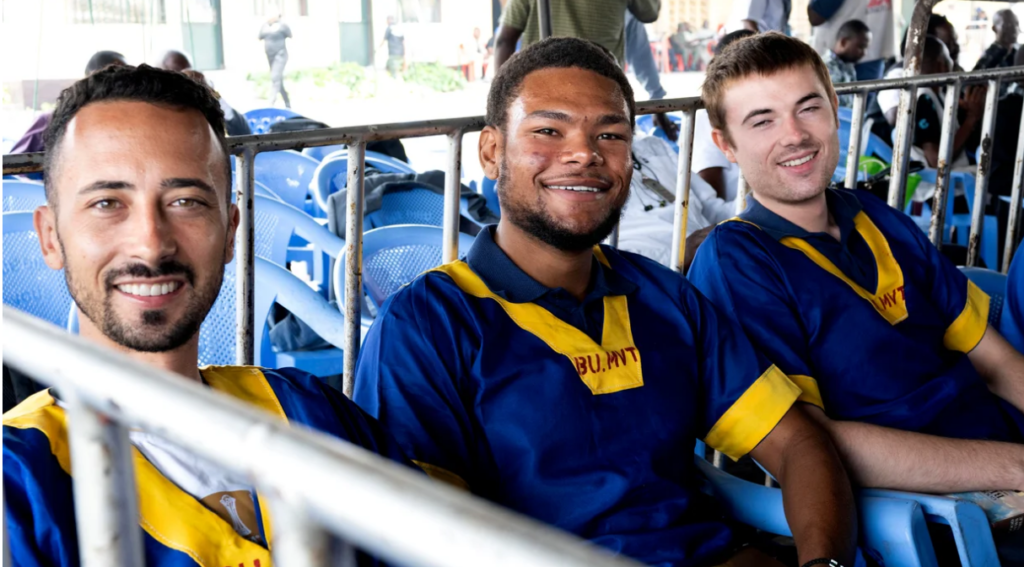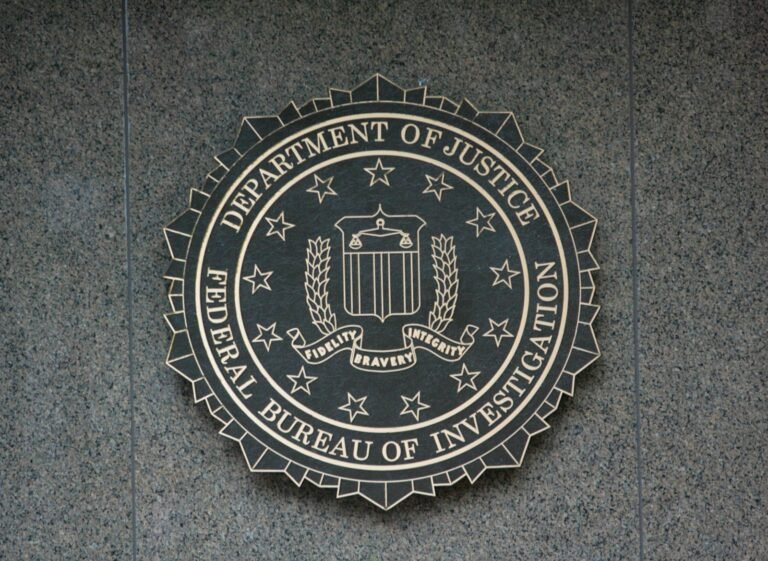
Federal prosecutors have unsealed a criminal complaint charging four U.S. citizens with conspiring to carry out an armed coup in the Democratic Republic of the Congo (DRC), in an alleged plot that involved attempts to assassinate top government officials and establish a new regime.
According to the U.S. Department of Justice, the defendants—Marcel Malanga, 22; Tyler Thompson, 22; Benjamin Zalman-Polun, 37; and Joseph Peter Moesser, 67—face multiple charges, including conspiracy to provide material support to terrorism, conspiracy to use weapons of mass destruction, conspiracy to bomb government facilities, and conspiracy to kill or kidnap persons in a foreign country.

Samy Ntumba Shambuyi / AP
Three of the defendants—Malanga, Thompson, and Zalman-Polun—were transferred from the DRC to the United States and are scheduled to make their initial court appearances in Brooklyn, New York. Moesser, who was arrested in Utah, made his first appearance in federal court in Salt Lake City on April 10. The case is expected to continue with proceedings in Salt Lake City.
Alleged Coup Plot and Attacks
The complaint alleges that the four men were involved in a coordinated military operation to overthrow the DRC government and assassinate President Félix Tshisekedi and Deputy Prime Minister for the Economy Vital Kamerhe. On the day of the attack, armed men wearing camouflage uniforms stormed both the Palais de la Nation—the president’s official residence—and Kamerhe’s private home in Kinshasa.
Gunfire erupted at both locations, leaving at least six people dead, including two police officers and one civilian. The attack was part of a broader plan to establish a breakaway government, dubbed the “New Zaire”, led by Christian Malanga, the now-deceased alleged ringleader and father of Marcel Malanga.
Christian Malanga was identified in the complaint as the orchestrator of the coup plot. His son, Marcel Malanga, claimed the title of “Chief of Staff of the Zaire Army.” Polun was named as Christian Malanga’s chief of staff. Moesser allegedly served as the explosives technician, while Thompson was described as a soldier and drone specialist.
The group allegedly planned to deploy drone-mounted bombs and even flamethrowers as part of the coup attempt. According to the DOJ, the defendants acquired and attempted to acquire explosives and incendiary devices intended to target individuals, homes, and government buildings in the DRC.
Prosecutors said the group sought to procure military-grade equipment from U.S. businesses, private parties, and even individuals connected to foreign military organizations. This included firearms, ammunition, uniforms, and communication-jamming devices. Weapons and other resources were reportedly transported from the U.S. to the DRC.
The investigation also revealed that the conspirators conducted firearms and weapons training in both the United States and Africa in preparation for the attack.
Legal Consequences
If convicted, the defendants could face up to life in prison for several of the charges, including conspiracy to use weapons of mass destruction, bomb government facilities, and kill or kidnap persons in a foreign country. Additional charges related to providing material support to terrorism each carry a maximum penalty of 15 years in prison.
Malanga and Thompson also face up to 15 years for allegedly taking firearms out of the United States to commit a felony offense.
The charges were announced by Sue J. Bai, Head of the U.S. Department of Justice National Security Division; Acting U.S. Attorney Felice John Viti for the District of Utah; and FBI Special Agent in Charge Mehtab Syed of the Salt Lake City Field Office.
The case is being led by the FBI Salt Lake City Field Office, with support from the FBI’s New York Field Office and its Legal Attaché in Nairobi, which oversees operations related to the DRC. The DOJ’s Criminal Division’s Office of International Affairs also played a key role in facilitating the investigation and extraditions.
Assistant U.S. Attorneys Bryan R. Whittaker and Jonathan Stowers, along with Trial Attorney Tanya Senanayake from the DOJ’s Counterterrorism Section, are prosecuting the case.
Authorities emphasized that a criminal complaint is only an allegation, and all defendants are presumed innocent until proven guilty beyond a reasonable doubt in a court of law.


